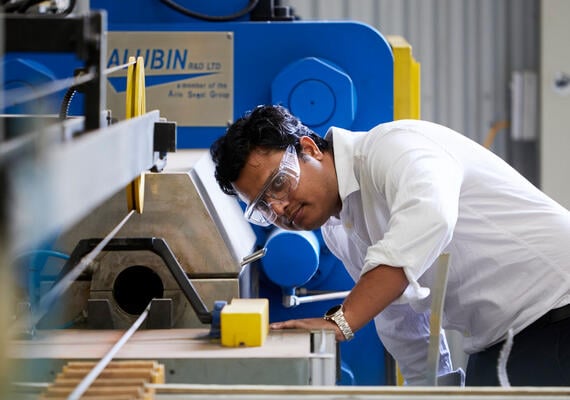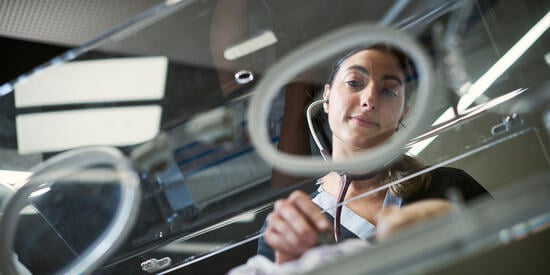
Access leading research facilities
Our facilities are shared by researchers from across the University, giving you access to future-focused technology and new ways of thinking about your question or product.
Deakin researchers collaborate with business, community organisations and government to deliver powerful and applied solutions. Your partnership with Deakin gives you access to multimillion dollar research facilities and infrastructure. Whatever the size of your organisation, we can help you grow your ideas from concept to reality.
From Barwon Health to local carbon fibre and hydrogen industries, we’re committed to supporting industry and government to create jobs in regional Victoria. We also have partners around the world addressing global social, economic and environmental challenges.
Your partnership with Deakin opens the door to multimillion dollar research facilities and infrastructure, some of which can’t be found outside our campuses. Access industrial-scale facilities and co-location opportunities, as well as our impact-driven research.
Tap into the best and brightest minds from our faculties, institutes and research centres. Connecting our people and capabilities to your ideas, our research leaders develop practical and effective solutions for the major challenges facing communities in Australia and abroad.
As a national leader in research commercialisation and collaboration, when you work with Deakin you gain a partner that is open and flexible to your needs, understands your goals and shares your ambition to develop practical solutions for positive, lasting impact.
Professor Iain Martin
Vice-Chancellor
Looking for a particular research group at Deakin? Use our research directory and filter by theme, entity, faculty or study area. Or, use keyword search to find a specialist research area that interests you.

Our facilities are shared by researchers from across the University, giving you access to future-focused technology and new ways of thinking about your question or product.

We’re committed to supporting businesses, creating jobs and driving economic and social development in regional Victoria. We strive to enable our local industries and communities to unleash their ideas and innovations for global impact.
Whether you want to find a research supervisor, learn more about our academics, search Deakin staff, or partner with us – tap into the unrivalled expertise and established networks of Deakin’s world-class researchers.
Deakin’s PhD industry placements program gives organisations like yours access to emerging research experts to solve problems and harness new opportunities. Industry placements are available to all non-higher education institutions, such as small-to-medium enterprises, government and not-for-profits, and can be completed by both domestic and international graduate researchers.
We have had seven PhD researchers undertake internships with various Aurecon business units. The success of these projects, business impact and readiness of the candidates for industry has seen a number return to Aurecon following graduation.
Slaven Marusic
Data Science Lead, Aurecon
With proven success in tailoring practical interventions and launching scalable commercial applications, we’re consistently delivering transformational solutions to local and global challenges.

The world’s first autonomous wheelchair module, DROVE, enhances mobility and independence for wheelchair users, powered by AI-driven technology.

Deakin’s world-first Counting on U program equips finance professionals with mental health first-aid and relationship-building skills to support SME mental health.

Transforming healthcare through Deakin's world-first nursing and midwifery partnership, delivering research-driven care to over 3 million Victorians annually.
Interested in partnering with Deakin research? Submit an enquiry online or download our partnerships brochure if you’d like more information in print format.